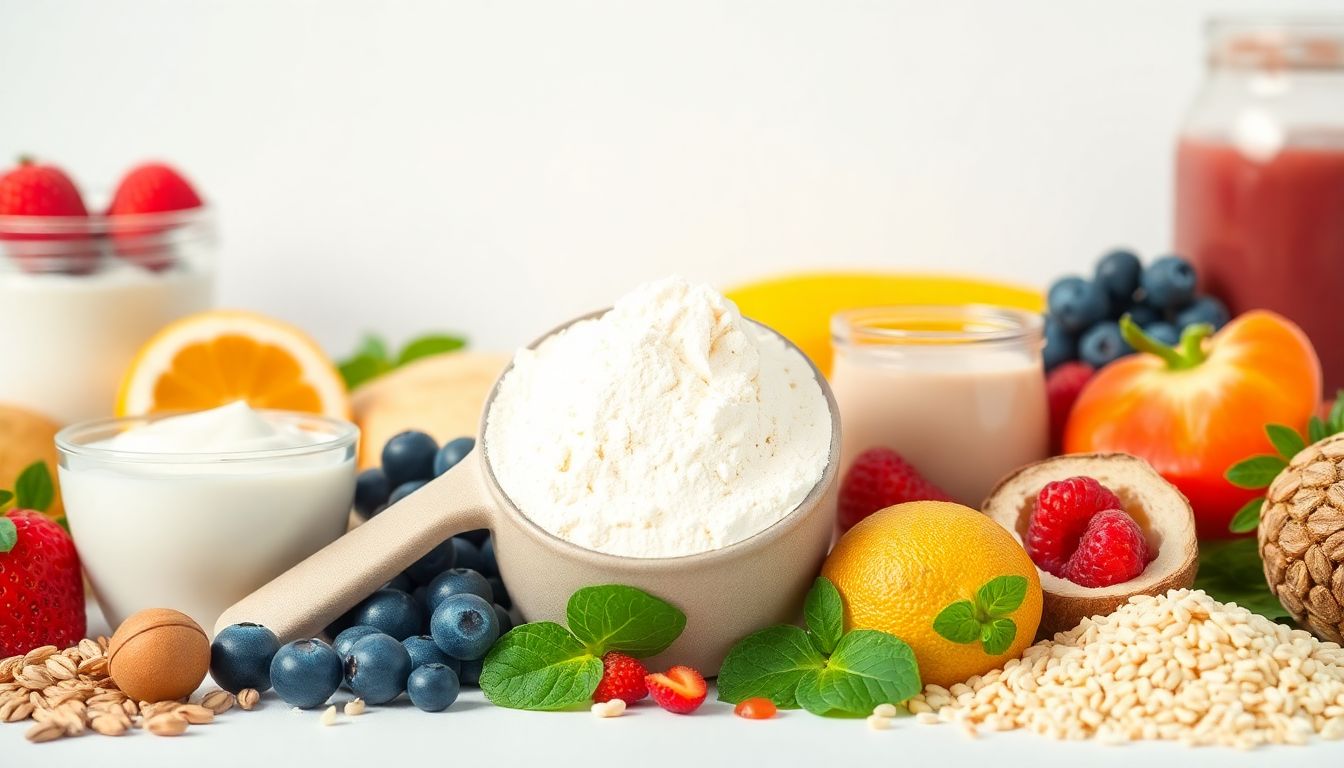Buttermilk powder: uses and benefits in nutrition

Whey powder is a dairy by-product obtained during the manufacture of cheese. After separation of the curd, the remaining liquid is processed and dehydrated to form this powder, which is widely used in the food industry for its nutritional richness and versatility.
Nutritional composition of buttermilk powder
This product is notable for its high content of high quality proteins, essential for various bodily functions. It also provides a variety of minerals such as calcium, phosphorus and magnesium, essential for bone health, and B vitamins and vitamin D, which support metabolism and general well-being.
Promotes muscle development
Thanks to its richness in essential amino acids, whey powder is ideal for muscle repair and growth and is a popular supplement among athletes.
Improves bone health
The significant supply of calcium and phosphorus contributes to the strengthening of bones, helping in the prevention of diseases such as osteoporosis.
Boosts the immune system
The antioxidant and anti-inflammatory properties of whey powder can strengthen the immune system, improving the body’s response to pathogens.
Supports weight loss
Its ability to increase satiety and its low calorie content make it useful in weight loss diets.

Industrial milk powder suppliers
Uses of whey powder in the food industry
Whey powder is incorporated in various food products due to its functional properties:
- Bakery: Improves the texture and prolongs the freshness of baked goods.
- Confectionery: It acts as an emulsifying agent in chocolates and candies.
- Beverages: It is used in shakes and nutritional supplements due to its high protein value.
- Dairy products: It enriches yoghurts and cheeses, improving their nutritional profile.
Considerations when consuming buttermilk powder
Although it is a beneficial product, it is important to take into account:
- Lactose intolerance: It may contain lactose, so people with intolerance should opt for lactose-free versions. Whey has quite a lot of lactose, up to 85%.
- Allergies: Not suitable for those with milk protein allergies.
- Moderate consumption: Intake should be balanced within a varied and healthy diet.
For more information on dairy products and their derivatives, visit Beurrespa, specialists in dairy ingredients for industrial customers.
Frequently asked questions about whey powder
Is whey powder suitable for people with lactose intolerance?
Generally, it contains lactose, so it is not recommended for people with lactose intolerance. There are lactose-free versions on the market.
How is whey powder different from whey protein?
Whey powder is the dehydrated by-product of the cheese making process, while whey protein is a protein concentrate derived from whey, with a higher protein content and lower carbohydrate and fat content.
Can buttermilk powder be used in domestic cooking?
Yes, it is versatile and can be incorporated into baking recipes, smoothies and other dishes to increase protein content and improve texture.
Does whey powder help in post-workout recovery?
Yes, its high protein and essential amino acid content promotes muscle repair and growth after exercise.
Is whey powder suitable for vegetarian diets?
Being a product of animal origin, it is not suitable for strict vegetarian diets. However, it can be consumed by ovo-lacto vegetarians.
